New Zealand Cryptocurrency trading platforms have seen huge growth among new New Zealander crypto traders entering the ever changing volatile cryptocurrency financial markets. New Zealander traders have been attracted to the future potential that cryptocurrency markets and New Zealand crypto trading platforms may hold.
A good crypto trading platform in New Zealand will support the cryptocurrencies that you prefer and match your investment strategy and trading risk level. New Zealander cryptocurrency traders do not want to encounter any problems when trading altcoins. In addition, New Zealand crypto traders should choose a platform in New Zealand that is easy to use for beginners. If you are a novice, you may want to consider using a New Zealand cryptocurrency trading platform that has easy-to-use functions. This will reduce the risk of errors and increase your chances of succesful crypto trading with a cryptocurrency exchange in New Zealand.

🤴 IC Markets is Used By: 180,000
⚡ IC Markets is Regulated by: Australian Securities and Investments Commission (ASIC), Financial Services Authority (FSA), Cyprus Securities and Exchange Commission (CySEC)
💵 What You Can Trade with IC Markets: Forex, Majors, Energies, Metals, Agriculturals,
💵 Instruments Available with IC Markets: 232
📈 IC Markets Inactivity Fees: No
💰 IC Markets Withdrawal Fees: No
💰 IC Markets Payment Methods: Credit Cards, VISA, MasterCard, Debit Cards, Visa, MasterCard, Bank Transfer, PayPal, Neteller, Neteller VIP, Skrill, Poli, Cheque, BPAY, UnionPay, FasaPay, QIWI, RapidPay, Klarna, Electronic wallets (eWallets), Broker to Brokers, Thai Internet Banking, Vietnamese Internet Banking,
IC Markets Risk warning : Losses can exceed deposits
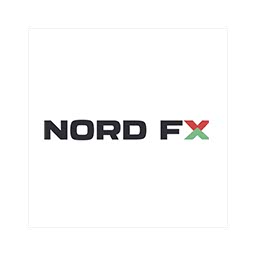
🤴 NordFX is Used By: 10,000
⚡ NordFX is Regulated by: Cyprus Securities and Exchange Commission (CySEC), License No: 209/13
💵 What You Can Trade with NordFX: Forex, Majors, Metals,
💵 Instruments Available with NordFX: 50
📈 NordFX Inactivity Fees: No
💰 NordFX Withdrawal Fees: No
💰 NordFX Payment Methods: Bank Transfer, Neteller, PerfectMoney, WebMoney, FasaPay, CashU, Payza, QIWI,
NordFX Risk warning : Losses can exceed deposits

🤴 XTB is Used By: 250,000
⚡ XTB is Regulated by: Financial Conduct Authority (FCA), FCA number FRN 522157, Cyprus Securities and Exchange Commission (CySEC), CySEC Licence Number: 169/12, Comision Nacional del Mercado de Valores, Komisja Nadzoru Finansowego, Belize International Financial Services Commission (IFSC) under license number IFSC/60/413/TS/19, Polish Securities and Exchange Commission (KPWiG), Dubai Financial Services Authority (DFSA), Dubai International Financial Center (DIFC),Financial Sector Conduct Authority (FSCA), XTB AFRICA (PTY) LTD licensed to operate in South Africa
💵 What You Can Trade with XTB: Forex, Minors, Cryptocurrencies, Majors, Exotics, Indices, UK Stocks, US Stocks, Pennystocks, Energies, Metals, Agriculturals, ETFs,
💵 Instruments Available with XTB: 4000
📈 XTB Inactivity Fees: Yes
💰 XTB Withdrawal Fees: No
💰 XTB Payment Methods: Credit cards, MasterCard, Maestro, Visa, Debit cards, Bank Transfer, Electronic wallets (eWallets), PayPal, Neteller, Skrill, Poli, Paysafe, Payoneer,
XTB Risk warning : 76% - 83% of retail investor accounts lose money when trading CFDs with this provider. You should consider whether you understand how CFDs work and whether you can afford to take the high risk of losing your money.

🤴 Pepperstone is Used By: 89,000
⚡ Pepperstone is Regulated by: Financial Conduct Authority (FCA), Australian Securities and Investments Commission (ASIC), Cyprus Securities and Exchange Commission (CySEC), Federal Financial Supervisory Authority (BaFin), Dubai Financial Services Authority (DFSA), Capital Markets Authority of Kenya (CMA), Pepperstone Markets Limited is incorporated in The Bahamas (number 177174 B), Licensed by the Securities Commission of the Bahamas (SCB) number SIA-F217
💵 What You Can Trade with Pepperstone: Forex, Minors, Cryptocurrencies, Majors, Exotics, Indices, Energies, Metals,
💵 Instruments Available with Pepperstone: 100
📈 Pepperstone Inactivity Fees: Yes
💰 Pepperstone Withdrawal Fees: No
💰 Pepperstone Payment Methods: Credit cards, VISA, MasterCard, Debit cards, Bank Transfer, Electronic wallets (eWallets), PayPal, Neteller, BPAY, POLi, UnionPay, FasaPay, QIWI, Payoneer,
Pepperstone Risk warning : CFDs are complex instruments and come with a high risk of losing money rapidly due to leverage. Between 74-89 % of retail investor accounts lose money when trading CFDs. You should consider whether you understand how CFDs work and whether you can afford to take the high risk of losing your money

🤴 XM is Used By: 10,000,000
⚡ XM is Regulated by: Financial Services Commission (FSC), Cyprus Securities and Exchange Commission (CySEC), Australian Securities and Investments Commission (ASIC)
💵 What You Can Trade with XM: Forex, Stock CFDs, Commodity CFDs, Minors, Majors, Exotics, Equity Indices CFD, Energies CFD, Precious Metals
💵 Instruments Available with XM: 1000
📈 XM Inactivity Fees: Yes
💰 XM Withdrawal Fees: No
💰 XM Payment Methods: Credit cards, Debit cards, Bank Transfer, Electronic wallets (eWallets), Moneta, ABAQOOS, PRZELEWY24, Neteller, PerfectMoney, WebMoney, UnionPay, FasaPay, CashU, Payza, QIWI, SOFORT, Giropay, Payoneer, Skrill,
XM Risk warning : CFDs are complex instruments and come with a high risk of losing money rapidly due to leverage. 77.74% of retail investor
accounts lose money when trading CFDs with this provider. You should consider whether you understand how CFDs work and whether you can afford
to take the high risk of losing your money.

🤴 eToro is Used By: 20,000,000
⚡ eToro is Regulated by: Financial Conduct Authority (FCA), Cyprus Securities and Exchange Commission (CySEC), Markets In Financial Instruments Directive (MiFID), Australian Securities and Investments Commission (ASIC)
💵 What You Can Trade with eToro: Forex, Minors, Cryptocurrencies, Majors, Exotics, Indices, UK Stocks, US Stocks, Energies, Metals, Agriculturals, ETFs,
💵 Instruments Available with eToro: 2000
📈 eToro Inactivity Fees: Yes
💰 eToro Withdrawal Fees: Yes
💰 eToro Payment Methods: Credit cards, VISA, MasterCard, Maestro, Debit Cards, Bank Transfer, PayPal, Neteller, Skrill, WebMoney, Giropay, eWallets,
eToro Risk warning : 51% of retail investor accounts lose money when trading CFDs with this provider.
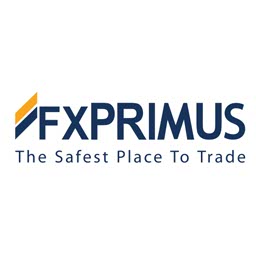
🤴 FXPrimus is Used By: 10,000
⚡ FXPrimus is Regulated by: Cyprus Securities and Exchange Commission (CySEC), Markets In Financial Instruments Directive (MiFID), Vanuatu Financial Services Commission (VFSC)
💵 What You Can Trade with FXPrimus: Forex, Minors, Majors, Exotics, Indices, UK Stocks, US Stocks, Energies, Metals,
💵 Instruments Available with FXPrimus: 130
📈 FXPrimus Inactivity Fees: No
💰 FXPrimus Withdrawal Fees: Varies
💰 FXPrimus Payment Methods: Credit cards, VISA, MasterCard, Debit cards, Bank Transfer, Electronic wallets (eWallets), Neteller, Skrill, Payoneer, SafeCharge, TrustPay, EmerchantPay, Bitcoin, UnionPay, FasaPay, Giropay,
FXPrimus Risk warning : Losses can exceed deposits

🤴 easyMarkets is Used By: 142,500
⚡ easyMarkets is Regulated by: Cyprus Securities and Exchange Commission (CySEC), Australian Securities and Investments Commission (ASIC), Financial Services Authority (FSA), British Virgin Islands Financial Services Commission (BVI)
💵 What You Can Trade with easyMarkets: Forex, Minors, Cryptocurrencies, Majors, Exotics, Indices, Energies, Metals, Agriculturals, Options,
💵 Instruments Available with easyMarkets: 200
📈 easyMarkets Inactivity Fees: No
💰 easyMarkets Withdrawal Fees: No
💰 easyMarkets Payment Methods: Credit cards, MasterCard, Maestro, American Express, JCB, Astropay, Debit cards, Bank Transfer, SOFORT, GiroPay, iDeal, Bpay, Electronic wallets (eWallets), Skrill, Neteller, WebMoney, UnionPay, WeChatPay, FasaPay, STICPAY,
easyMarkets Risk warning : Your capital is at risk
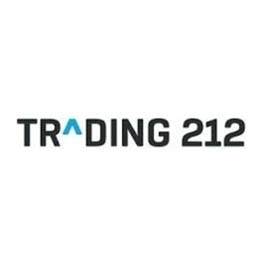
🤴 Trading 212 is Used By: 15,000,000
⚡ Trading 212 is Regulated by: Financial Conduct Authority (FCA), Financial Supervision Commission (FSC)
💵 What You Can Trade with Trading 212: Forex, Minors, Cryptocurrencies, Majors, Exotics, Indices, UK Stocks, US Stocks, Energies, Metals, ETFs, Bonds,
💵 Instruments Available with Trading 212: 10000
📈 Trading 212 Inactivity Fees: No
💰 Trading 212 Withdrawal Fees: No
💰 Trading 212 Payment Methods: Credit cards, MasterCard, VISA, Debit cards, Bank Transfer, Electronic wallets (eWallets), PayPal, Skrill, Dotpay, Carte Bleue, Direct eBanking, Apple Pay, Google Pay, iDeal, Giropay,
Trading 212 Risk warning : CFDs are complex instruments and come with a high risk of losing money rapidly due to leverage. 76% of retail investor accounts lose money when trading CFDs with this provider. You should consider whether you understand how CFDs work and whether you can afford to take the high risk of losing your money.

🤴 Admiral Markets is Used By: 10,000
⚡ Admiral Markets is Regulated by: Financial Conduct Authority (FCA), Cyprus Securities and Exchange Commission (CySEC), Australian Securities and Investments Commission (ASIC), Jordan Securities Commission (JSC)
💵 What You Can Trade with Admiral Markets: Forex, Minors, Cryptocurrencies, Majors, Exotics, Indices, UK Stocks, US Stocks, Energies, Metals, ETFs, Bonds,
💵 Instruments Available with Admiral Markets: 148
📈 Admiral Markets Inactivity Fees: No
💰 Admiral Markets Withdrawal Fees: No
💰 Admiral Markets Payment Methods: Credit cards, Visa, MasterCard, Debit cards, Bank Transfer, Electronic wallets (eWallets), PayPal, Neteller, Skrill, SOFORT, Safety Pay, Przelewy, iDEAL, Klarna,
Admiral Markets Risk warning : Losses can exceed deposits

🤴 SpreadEx is Used By: 10,000
⚡ SpreadEx is Regulated by: Financial Conduct Authority (FCA)
💵 What You Can Trade with SpreadEx: Forex, Minors, Cryptocurrencies, Majors, Exotics, Indices, UK Stocks, US Stocks, Pennystocks, Energies, Metals, Agriculturals, ETFs, IPO, Bonds, Options, Treasuries,
💵 Instruments Available with SpreadEx: 15000
📈 SpreadEx Inactivity Fees: No
💰 SpreadEx Withdrawal Fees: 0, minimum £50
💰 SpreadEx Payment Methods: Credit cards, VISA, Switch, Maestro, Debit cards, Bank Transfer, Payoneer,
SpreadEx Risk warning : Losses can exceed deposits

🤴 Swissquote is Used By: 300,000
⚡ Swissquote is Regulated by: Swiss Financial Market Supervisory Authority (FINMA), Commission de Surveillance du Secteur Financier (CSSF), Financial Conduct Authority, Dubai Financial Services Authority (DFSA), Hong Kong Securities and Futures Commission (SFC), Monetary Authority of Singapore (MAS)
💵 What You Can Trade with Swissquote: Forex, Minors, Majors, Exotics, Indices, UK Stocks, US Stocks, Pennystocks, Energies, Metals, Bonds,
💵 Instruments Available with Swissquote: 100
📈 Swissquote Inactivity Fees: No
💰 Swissquote Withdrawal Fees: $10
💰 Swissquote Payment Methods: Credit cards, Debit cards, Bank Transfer, Payoneer,
Swissquote Risk warning : Losses can exceed deposits

🤴 HYCM is Used By: 10,000
⚡ HYCM is Regulated by: Financial Conduct Authority (FCA), FCA reference number 186171, Cyprus Securities and Exchange Commission (CySEC), CySEC license number 259/14, Cayman Islands Monetary Authority (CIMA), CIMA reference number 1442313, Dubai financial services authority (DFSA), DFSA license number 000048
💵 What You Can Trade with HYCM: Forex, Minors, Cryptocurrencies, Majors, Exotics, Indices, UK Stocks, Energies, Metals, Agriculturals,
💵 Instruments Available with HYCM: 100
📈 HYCM Inactivity Fees: Yes
💰 HYCM Withdrawal Fees: No
💰 HYCM Payment Methods: Credit cards, Debit cards, Bank Transfer, PayPal, WebMoney, Payoneer,
HYCM Risk warning : Losses can exceed deposits

🤴 ThinkMarkets is Used By: 500,000
⚡ ThinkMarkets is Regulated by: Financial Conduct Authority (FCA), Australian Securities and Investments Commission (ASIC), Financial Sector Conduct Authority (FSCA), Financial Services Authority Seychelles (FSA), TF Global Markets (UK) Limited is authorised and regulated by the Financial Conduct Authority FRN 629628, TF Global Markets (AUST) Limited is the holder of Australian Financial Services License number 424700, TF Global Markets (South Africa)(Pty) Ltd is an Authorised Financial Services Provider (FSP No 49835),TF Global Markets Int Limited Is authorised and regulated by the Financial Services Authority Firm Reference Number SD060
💵 What You Can Trade with ThinkMarkets: Forex, Minors, Cryptocurrencies, Majors, Exotics, Indices, Energies, Metals,
💵 Instruments Available with ThinkMarkets: 1500
📈 ThinkMarkets Inactivity Fees: Yes
💰 ThinkMarkets Withdrawal Fees: No
💰 ThinkMarkets Payment Methods: Credit cards, Debit cards, Bank Transfer, Electronic wallets (eWallets), Neteller, Skrill, BitPay,
ThinkMarkets Risk warning : CFDs are complex instruments and come with a high risk of losing money rapidly due to leverage. 71.89% of retail investor accounts lose money when trading CFDs with this provider. You should consider whether you understand how CFDs work and whether you can afford to take the high risk of losing your money
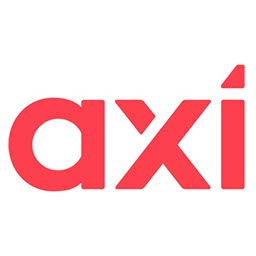
🤴 Axi is Used By: 10,000
⚡ Axi is Regulated by: Financial Conduct Authority (FCA), Australian Securities and Investments Commission (ASIC), Dubai Financial Services Authority (DFSA), Financial Service Authority of St. Vincent and the Grenadines (FSA)
💵 What You Can Trade with Axi: Forex, Minors, Cryptocurrencies, Majors, Exotics,
💵 Instruments Available with Axi: 100
📈 Axi Inactivity Fees: No
💰 Axi Withdrawal Fees: No
💰 Axi Payment Methods: Credit cards, Debit cards, Bank Transfer, Neteller, BPAY, UnionPay, Payoneer,
Axi Risk warning : Losses can exceed deposits

🤴 Eightcap is Used By: 10,000
⚡ Eightcap is Regulated by: Australian Securities and Investments Commission (ASIC), Vanuatu Financial Services Commission (VFSC)
💵 What You Can Trade with Eightcap: Forex, Minors, Majors, Exotics, Indices, Energies, Metals,
💵 Instruments Available with Eightcap: 100
📈 Eightcap Inactivity Fees: No
💰 Eightcap Withdrawal Fees: Yes
💰 Eightcap Payment Methods: Credit cards, Debit cards, Bank Transfer, POLi, UnionPay, Payoneer,
Eightcap Risk warning : Losses can exceed deposits
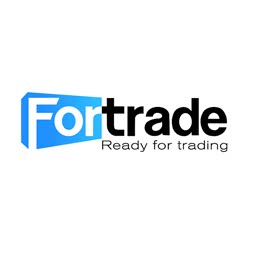
🤴 ForTrade is Used By: 1,000,000
⚡ ForTrade is Regulated by: Financial Conduct Authority (FCA), Cyprus Securities and Exchange Commission (CySEC), Investment Industry Regulatory Organization of Canada (IIROC), National Bank of the Republic of Belarus (NBRB)
💵 What You Can Trade with ForTrade: Forex, Minors, Cryptocurrencies, Majors, Exotics, Bonds,
💵 Instruments Available with ForTrade: 100
📈 ForTrade Inactivity Fees:
💰 ForTrade Withdrawal Fees: No
💰 ForTrade Payment Methods: Credit cards, Debit cards, Bank Transfer, PayPal, Neteller, Payoneer,
ForTrade Risk warning : Your capital is at risk
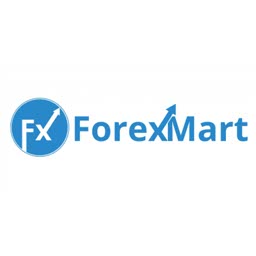
🤴 ForexMart is Used By: 10,000
⚡ ForexMart is Regulated by: Cyprus Securities and Exchange Commission (CySEC)
💵 What You Can Trade with ForexMart: Forex, Minors, Cryptocurrencies, Majors, Exotics, Indices, UK Stocks, US Stocks, Energies, Metals, ETFs, Bonds,
💵 Instruments Available with ForexMart: 111
📈 ForexMart Inactivity Fees: No
💰 ForexMart Withdrawal Fees: 5
💰 ForexMart Payment Methods: Bank Transfer, Visa, MasterCard, Skrill, Neteller, PayCo, fasaPay, Qiwi, Union Pay, AliPay,
ForexMart Risk warning : Your capital is at risk

🤴 FxPro is Used By: 1,866,000
⚡ FxPro is Regulated by: Financial Conduct Authority (FCA), Cyprus Securities and Exchange Commission (CySEC), Financial Sector Conduct Authority (FSCA), Securities Commission of the Bahamas (SCB)
💵 What You Can Trade with FxPro: Forex, Minors, Cryptocurrencies, Majors, Exotics, Indices, UK Stocks, US Stocks, Energies, Metals, Agriculturals,
💵 Instruments Available with FxPro: 430
📈 FxPro Inactivity Fees: Yes
💰 FxPro Withdrawal Fees: No
💰 FxPro Payment Methods: Bank, Wire Transfers, Credit cards, Debit Cards, Visa, Maestro, MasterCard, American Express, eWallets, PayPal, Skrill, Neteller, UnionPay
FxPro Risk warning : 75.78% of retail investor accounts lose money when trading CFDs and Spread Betting with this provider

🤴 Phoenix Markets is Used By: 10,000
⚡ Phoenix Markets is Regulated by: Cyprus Securities and Exchange Commission (CySEC)
💵 What You Can Trade with Phoenix Markets: Forex, Minors, Cryptocurrencies, Majors, Exotics, Indices, UK Stocks, US Stocks, Energies, Metals, ETFs, Bonds,
💵 Instruments Available with Phoenix Markets: 97
📈 Phoenix Markets Inactivity Fees:
💰 Phoenix Markets Withdrawal Fees: varies
💰 Phoenix Markets Payment Methods: Credit cards, Skrill, Neteller, Bank Transfer,
Phoenix Markets Risk warning : Your capital is at risk
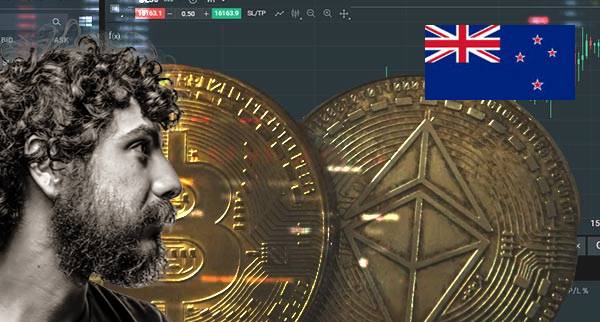
A crypto trading platform in New Zealand must be financially regulated and offer simple deposit and withdrawal procedures. The user interface must be user-friendly and provide a comprehensive knowledge base and tips to help you succeed. You should also be able to view the market data and the history of your purchases. It is also important to choose a platform in New Zealand that is accessible to New Zealander crypto beginners. That way, you can easily track your progress and avoid losing your money. A New Zealand crypto trading platform that offers the most features in New Zealand will be the best choice for you.
Hundreds of cryptocurrency assets and crypto financial instruments are available to trade for New Zealander traders, and more are added every week. The most popular cryptocurrencies in New Zealand include :
A crypto exchange is an online marketplace in New Zealand where New Zealander traders can buy and sell cryptocurrencies. Different New Zealand crypto exchanges have different security policies, which is an important factor to consider before depositing your money. You may want to choose an exchange in New Zealand with the best security measures. The most secure exchanges in New Zealand are the ones that have the fewest problems. Your shortlisted New Zealand cryptocurrency exchange's website should provide you with information about the security measures and features of their exchange. For example encription and 2 factor authentication.
A good crypto trading platform in New Zealand should offer a wide range of assets. A platform that supports a wide range of assets in New Zealand will be more useful than one that only focuses on one. If it supports a wide variety of assets, this is a great benefit. It will lower your risks and boost your profits. Once you have selected the right crypto exchange in New Zealand, you can start investing. Keep in mind that the best choice for you is a combination of several factors.
There are several advantages to using a decentralized cryptocurrency exchange over a centered one in New Zealand. A decentralized exchange is run by users, instead of a third party, and is less vulnerable to hacking. This makes it easier to protect your own assets in New Zealand. A decentralized exchange in New Zealand is more secure, but New Zealander crypto traders will be more responsible if they use a centralized system. For example, a New Zealand centralized crypto exchange is liable for any losses due to hacking, but a large site will compensate New Zealand clients for any damage that occurs. In addition, a decentralized exchange in New Zealand removes the need for trusting a third party to protect your assets, requiring you to trust yourself and your own judgement.
While a centralized cryptocurrency exchange in New Zealand does not require a third party, it does have a centralized authority that monitors transactions. These exchanges also do not require you to verify your personal information in New Zealand or corporate data. This makes them more secure for investors in New Zealand. A New Zealand centralized crypto exchange is easier to hack making a New Zealand decentralized exchange is the best overall solution for most New Zealander traders.
Cryptocurrency trading platforms in New Zealand are a great option for those looking to speculate on cryptocurrency assets in this new marketplace. New Zealand crypto trading platform fees vary so look for the lowest fees and cheapest pricing. These trading platforms in New Zealand can make it a lot easier for beginners to get started as the most popular ones are available through a web browser or mobile device. These new technologies have brought a number of benefits to the mainstream that have historically benefited traditional professional traders for decades. Modern New Zealand trading platforms include the ability to store multiple types of crypto, the ability to trade various coins and the ability to invest in a variety of cryptocurrencies at the same time and store them from the New Zealand.
There are several advantages to using New Zealand cryptocurrency trading platforms. First, decentralized exchanges offer more privacy. There are no centralized exchanges to worry about in New Zealand, and you do not have to worry about hackers or third parties manipulating the market. Additionally, these decentralized New Zealand platforms are considered relatively safer. In addition, they can avoid the possibility of wash trading, or price manipulation leading to New Zealand crypto traders unfairly losing money.
Many New Zealand platforms offer security features, which can keep your funds safe and secure. Some of these New Zealand platforms allow you to fund your account with a credit card or a mobile wallet, allowing you to invest without worrying about fraud or money laundering. Of course, there are a lot of advantages to using a centralized exchange in New Zealand, but some New Zealander users may find it unsettling to deal with an exchange that requires a large amount of personal information.
Some New Zealandcrypto exchange platforms have unique features that make them more user-friendly. While some leading New Zealandplatforms have an extensive set of features, smaller and less-known platforms compensate for this with zero or low fees in New Zealand
Using a reliable New Zealand cryptocurrency trading platform requires careful consideration and a good understanding of the cryptocurrencies being traded. It is critical to understand how each trading platform in New Zealand works. Typically, the most reliable ones have a free trial period. The trial periods let you test out their platform before making a full-fledged account. Once you are happy with the service, you can proceed with making purchases in New Zealand
A good cryptocurrency exchange in New Zealand will let you deposit and withdraw your funds without incurring any fees. However, some New Zealand platforms will charge you for withdrawals and deposits. You should check the policies before you invest. Some New Zealand exchanges will even charge you for the convenience of depositing and withdrawing your coins. Regardless of the type of cryptocurrency exchange you choose, you are sure to find one that suits your needs.
A user-friendly New Zealand cryptocurrency trading tool will also provide you with a variety of indicators. Most of these tools will display data about the current price of the coins, as well as historical information. This is especially useful for New Zealand crypto trading developers as it allows them to test their strategies with historical data. These tools are very helpful for New Zealander crypto beginners. Nevertheless, they can prove to be quite costly. You should also take note of the user-friendly features of each tool before making a decision.
A user-friendly New Zealand in crypto trading tool will give you the opportunity to choose the right cryptocurrency exchange for you. There are many exchanges in New Zealand that offer a range of currencies. However, if you are an experienced New Zealander trader, it is advisable to use an exchange that offers a range of options. Furthermore, user-friendly New Zealand crypto trading tools will allow you to create advanced crypto trading strategies. The best user-friendly crypto trading tools are those that can be used by beginners, but can be used by experts too.
A user-friendly cryptocurrency trading tool in New Zealand must be easy to use and have unlimited features. It should be free of charge. It must also be easy to use and has an easy-to-use interface. Most of these programs will let you trade multiple cryptocurrencies in New Zealand, while others are a bit more sophisticated and require more technical expertise. It is essential to understand the market in New Zealand before making your crypto first purchase.
Some people in New Zealand have theorized that cryptocurrency exchanges in New Zealand are too expensive. However, the lack of a middleman can make the process of investing more difficult for New Zealander traders. The fees associated with some cryptocurrency exchanges in New Zealand may be high but the higher cost may come with additional crypto trading features that you may require. This is why New Zealander traders should consider all of the pros and cons before committing to a New Zealand cryptocurrency trading platform.
A centralized New Zealand exchange may require the user to disclose their New Zealander identity, which goes against the ethos of New Zealand cryptocurrency. The exchange is also likely to require KYC (Know Your Customer) regulatory rules, which require users to divulge their New Zealander identity to prevent money laundering and crime and fraud. Furthermore, the New Zealand exchange may be more prone to hacking. A decentralized exchange in New Zealand can offer more security and privacy than a centralized exchange.
The centralized exchanges in New Zealand in New Zealand are a common disadvantage of cryptocurrency trading. While they can be a convenient way to trade digital currencies for New Zealand crypto traders, they have a few major disadvantages. These New Zealand platforms require a KYC form. This may discourage beginners from participating in cryptocurrency markets, buy KYC forms take a few minutes to complete and as long as you use a highly financially regulated New Zealand cryptocurrenct trading platform your New Zealander data is safe.
These risks are similar to other business cyber threats. A hacker can steal your private key or your money through a crypto account takeover, which is the most common way to steal your cryptocurrency in New Zealand. This is why you must keep a close eye on your private keys and avoid using them for any activity in New Zealand that might be illegal. You may never know when someone is trying to use your private key to swindle your money. So, the best way to protect yourself is to keep up-to-date with any changes in the New Zealand crypto world.
The biggest crypto hacking risks in New Zealand are phishing attacks. These attack scripts can load malware onto a New Zealander user's computer. There are many different ways a crypto platform in New Zealand can be hacked. If the hackers can target an account, it will be impossible for the user to trace their identity. In such a scenario, a person may even be able to gain control of a computer. While most companies in New Zealand are not concerned with this risk, they should consider the benefits of security training.
The transaction fees that a Bitcoin transaction costs in New Zealand depend on the type of transaction. These fees can range from as little as a few cents to as much as a few dollars. Most cryptocurrencies in New Zealand use transaction fees to reduce the amount of spam on their network. This is a necessary tool for keeping the network safe. These fees can be expensive but are generally minimal and should not deter you from using the cryptocurrency as a payment method in New Zealand.
The fee that goes with a Bitcoin transaction in New Zealand can vary from one cryptocurrency to another. A bitcoin transaction fee is much higher than a dollar transaction. You will have to calculate the fees before spending any cryptocurrency in New Zealand. These fees vary widely by coin and can vary drastically on short notice. There are two types of fees associated with Bitcoin transactions in New Zealand.
In addition to the transaction fee, cryptocurrency mining commissions in New Zealand are a source of income for many cryptocurrency miners. These small amounts of cryptocurrency are allocated to New Zealandminers and are used to pay for their work. The mining process is based on a blockchain, and each transaction is recorded in a block at regular intervals. The New Zealand miner who received the next coin is rewarded with this operation. This is the primary reason for the fees associated with a Bitcoin mining.
There are numerous options for crypto exchanges in New Zealand, so it is important to choose one that suits your needs and your budget. Many of the best New Zealand crypto platforms offer free registration, and some take a percentage of each transaction for their fee. While you can sign up for free and get a certain amount of trading fees, you should look for more robust New Zealand crypto trading platforms that have competitive fees that do not dilute your assets. Using a New Zealand crypto trading platform that has competitive fees is essential if you are trading digital currencies for the first time.
If you are an advanced New Zealander crypto trader, make sure your preferred exchange offers the trade types and margin that you prefer. This is a growing market in New Zealand, so you may want to test out different exchanges to see which one offers what you are looking for. For beginners, look for a New Zealand crypto trading platform with a simple interface and good educational resources. There is no single best platform for crypto, but you should have a good idea of which features you need to have before you start trading.
Choosing a New Zealand platform for buying and selling crypto is complex, and there are hundreds of digital currencies in circulation. The bulk of the big cryptocurrencies are readily available on most New Zealand platforms. If you are a beginner, you will need a dedicated exchange for rarer cryptos. It is important to know the currencies accepted by your chosen New Zealand platform. It is also crucial to select a New Zealand platform that suits your needs and experience level.
In order to make your first cryptocurrency trade in New Zealand, you must fund your New Zealand exchange account and your wallet. Typically, your New Zealand platform will provide you with a wallet, but if you prefer greater security, you should also create a separate crypto wallet of your own. Prices on crypto exchanges in New Zealand are set by the market, not by the exchange itself. While most exchanges are updated with current pricing, there may be slight differences. This is the nature of the decentralized nature of cryptocurrencies.
Authentication is required to buy or sell cryptocurrencies in New Zealand. While most New Zealand platforms offer anonymity for those who are concerned about the security of their funds, some require a form of identification. This helps to confirm that the exchange adheres to anti-money-laundering regulations. To prove your identity, you must provide some information, which may include a photo of ID or a signed declaration. Some New Zealandexchanges also charge a small fee for these verifications.
Some of the most reliable cryptocurrency exchanges in New Zealand are not centralized. That is because the New Zealand platforms are not regulated by a central authority. Moreover, decentralized exchanges have no authority to halt trading or remove cryptocurrencies. While this freedom is appealing to some people, it is important to note that there is still a risk associated with crypto trading in New Zealand. This is why the best New Zealand crypto trading platforms will offer security measures to ensure a New Zealander traders assets' safety. In addition to safeguarding your funds, the best exchanges will offer two-factor authentication and asset insurance for all transactions if they are regulated.
When choosing a New Zealand cryptocurrency trading platform, you need to make sure you are using a reliable exchange. You want to avoid New Zealand platforms that are not centralized in their operations. These exchanges will not be able to stop trading and they won't allow deposits. The best ones have two-factor authentication to protect your accounts, as well as a comprehensive asset insurance plan. This ensures that your cryptocurrency assets are protected at all times in New Zealand.
The biggest New Zealand crypto trading platform in eToro
When looking for a platform in New Zealand, you will want to consider the currencies that they accept. The most popular currencies include USD, GBP, EUR, and others. You can deposit with your credit card or bank transfer. Some exchanges in New Zealand will limit your first-time deposits to a certain amount of money. A good place to start is with a small deposit. You can make larger deposits later. The exchange will allow you to make smaller transactions, so you will not have to worry about transferring money to other sites in New Zealand.
If you are a beginner in crypto, you will want to look for a New Zealand platform with the lowest fees. This way, you can maximize your investment and avoid unnecessary losses. It is important to be aware of any fees and commissions associated with the exchange in New Zealand you choose. Once you are comfortable with this, you can start trading with virtual money. In addition to a great New Zealand platform, you can use your bank account to purchase and sell cryptocurrencies.
The first step in buying cryptocurrency in New Zealand is setting up an New Zealand crypto account. You can either use a new account or enable your existing one to buy crypto. Registering with a cryptocurrency exchange in New Zealand will depend on the platform you choose. Licensed New Zealand platforms will collect personal data and comply with KYC regulations. You may be asked for proof of your New Zealander identity and address, which is typically a valid ID or a selfie. Once you have all of your details verified, you can proceed to select your preferred crypto.
Once you have created an New Zealand crypto account, you can begin buying. Before you buy, make sure you have funds in your New Zealand account. Once you have made a deposit, the next step is to store the cryptocurrency in a secure location. Funding methods can include bank transfers, debit cards, digital wallets and even crypto deposits.
Once you have created an New Zealand account, you can start purchasing. You can link your New Zealand bank account to your account or authorize a wire transfer. You can also use a debit or credit card to buy cryptocurrency. You must be sure to store your cryptocurrency in a secure location in New Zealand after you've bought it. You will need a secure place to store your coins. You can use your digital wallet to transfer your funds. Once you have received the funds, you can begin the buying process.
Cryptocurrency CFD trading is considered high risk in New Zealand, because of the leverage used in cryptocurrency CFD trades and New Zealander financial regulators considering cryptocurrency to be highly volitile financial instruments that are not backed by real world assets. The UKs FCA and USA have banned CFD crypto trading as CFD trading is speculation on a crypto assets up or down price movement between the crypto trading platform and the trader, using highly leveraged borrowed money from the New Zealand crypto trading platform. Some advanced traders use crypto CFD trades as part of their porfolio to hedge other assets, but this can be very high risk. Although if a trade goes in your favour profits are high, You may lose more than your deposited amount when trading cryptocurrency CFD trades.
Many investors in New Zealand are asking themselves how do beginners invest cryptocurrency. The answer is easy: by buying and selling popular cryptocurrencies on exchanges. Moreover, cryptocurrency is a volatile asset, which makes it a good choice for first-time investors in New Zealand. Before beginning your cryptocurrency investment journey, it is important to understand the investment case. Just like buying stocks, you should learn about the company and read the prospectus. The same holds true for cryptocurrencies. There are thousands of different cryptocurrencies and new ones are created every day in New Zealand, so it is essential to research a few of them to find one that suits your investing needs. When it comes to cryptocurrency, there is no shortage of options, so you will have no trouble finding a great choice.
After choosing a cryptocurrency, it is important for New Zealander traders to understand the investment case. Just like investing in a stock, it is important to research a company in New Zealand before making a decision. The same applies to purchasing cryptocurrencies. Before making any crypto investment in New Zealand, you should first determine the risk of the cryptocurrency. Before investing in a crypto in New Zealand, make sure you have a well-rounded portfolio. Then, you will have to understand which cryptocurrencies are best for you.
Buying cryptocurrency is a popular investment in option for the average personNew Zealand. But it can be expensive. Bitcoin, the largest cryptocurrency, costs $57,000, which makes it very difficult for an individual to buy in large quantities. However, if you want to invest in this new currency in New Zealand for the long term, you can buy one part of it for as little as $1 in New Zealand. According to recent survey results, 40% of New Zealander people, did not even know that it was possible to buy a piece of it, and 12% did not understand the question at all.
To buy a certain amount of crypto in New Zealand, you will need money in your New Zealand account. If you are using a credit card to buy cryptocurrency, you will have to set aside a portion of the money. Many New Zealand exchanges will allow you to deposit a portion of the money, which is usually very small. If you want to buy a higher-priced token, you may want to deposit a larger amount.
Buying a cryptocurrency in New Zealand involves putting money into your account. You will need to deposit the money to the exchange, either by linking your New Zealand bank account or authorizing a wire transfer. However, you should note that this process can take a few days. You should also have a good understanding of the cryptocurrency market and how it works. You should choose an exchange in New Zealand that has low fees, and charges less than average for transaction fees.
First, you will need to deposit funds in your New Zealand account. Many cryptocurrency exchanges in New Zealand allow you to exchange fiat currencies, such as the US dollar, for cryptocurrencies like bitcoin. The next step is to choose a regulated New Zealand crypto exchange. Once you have chosen your exchange, you can fund your New Zealand account with funds to begin trading. Once you are ready, you can begin investing in various cryptocurrencies. Once you are ready to trade, you can then check the remaining funds in your New Zealand account. You can even invest in multiple currencies at once with a single account.
Once you have deposited the funds into your New Zealand account, you can start trading immediately. To open a New Zealand cryptocurrency trading account, you will need to complete several simple steps. To do this, you will need to sign up for an exchange in New Zealand that has an online signup form. The next step is to provide proof of identity by answering personal questions and providing a photo of your driver's license and a New Zealander proof of address. Once you have verified your identity, you can deposit your funds and start buying cryptocurrencies.
Once you have verified your identity, you are ready to start trading. Once you have done this, you will be ready to start buying and selling digital currencies. The process may take a few days or hours, depending on the cryptocurrency exchange and your location in New Zealand.
First, you need to compare the fee structure. Several crypto trading platforms in New Zealand charge a flat fee based on the amount of currency you trade. This is a good way to find the lowest rate, as a higher percentage means lower profits. However, when it comes to the exchanges' fees, you should look for those with the lowest costs and the best service in New Zealand. Using a comparison tool is also a good idea, since it helps you separate the truth from the false information.
The user interface: It is easy to use a cryptocurrency exchange if you are a beginner in New Zealand. There are many New Zealand platforms available, and these are excellent options for new traders. While they are not dedicated crypto exchanges, they do offer a variety of features that make crypto trading a great experience in New Zealand. Some even allow you to trade regular currencies alongside cryptocurrencies. To find the best New Zealand cryptocurrency trading platform, you should read the reviews and testimonials of the different exchanges.
Most exchanges in New Zealand offer a free trial that allows you to test the New Zealand platform before you decide to sign up. Most New Zealand platforms have support forums where you can find and ask questions. These are great places to start comparing the different exchanges. In addition to their features, a comparison tool will help you get the best deal. It will also help you identify scams. This is a good way to pick the best New Zealand crypto trading platform.
Before investing in a New Zealand crypto exchange, you need to consider the assets that you would like to trade. This way, you can diversify your investments. To determine what type of asset to trade, first look at its market cap and trading volume in New Zealand. Many New Zealand in platforms support a variety of different currencies, so it is important to choose a platform that offers a wide range of options. It is also important to check the available payment method in New Zealand, such as credit/debit cards, bank transfers, and eWallets.
The process of signup for most New Zealand platforms is similar. You must enter your personal information and then choose an asset to trade. Aside from your name and address, you must also provide a copy of your utility bill. Finally, you need to choose your payment method. While most New Zealand platforms offer web-hosted wallets, it is best to keep your own digital wallet if you plan to do serious trading. Otherwise, if the exchange you are using is hacked, you could lose your digital assets.
Most of the New Zealand crypto trading platforms offer free trials, so you can get an idea of how well they work and how much support they provide. You can also check out their user forums to see how helpful they are. Most New Zealand platforms have support communities, so you can ask questions and learn how to make the most of the service. In addition, most New Zealand platforms have educational sections that can help new traders become more comfortable with the platform.
Some New Zealand cryptocurrency exchanges accept credit cards and other traditional forms of payment. While you can buy crypto using credit cards and debit cards, you should also consider using an independent digital wallet. This is a safer and more secure method of paying for your crypto purchases in New Zealand. Some exchanges in New Zealand offer more than one payment method. Once you have chosen one, you can begin to make your first trades.
Some New Zealand platforms allow you to trade anonymously, but many require you to prove that you are an adult before you can trade crypto in New Zealand. This is done to prevent money laundering and ensure the safety of your funds in New Zealand. You will need to provide your New Zealander government ID number, name, address, and sometimes, you will need to submit a photo ID or a self-signed declaration. The payment methods you can use depend on the exchange, but they will all require a minimum deposit amount of money funded to your New Zealand crypto trading account before you can trade.
Most exchanges in New Zealand offer a free trial, but you should also be aware of New Zealand crypto platforms that charge a registration fee. Most New Zealand crypto accounts are free but some New Zealand crypto trading accounts with more advanced trading features may have a registration fee. Depending on the type of account, most New Zealand exchanges have their own fee structure. The most common fees include transaction fee, spread and maker/taker fees. There are also non-trading costs, such as deposit and withdrawal fees, inactivity fees and monthly account fees. Choosing the right cryptocurrency exchange in New Zealand depends on your trading volume.
Most New Zealand crypto exchanges require a transaction fee. When using a cryptocurrency exchange, you should be prepared to pay some fees. But the fees will be lower or higher with each New Zealand exchange so shop around and understand the fee structure before trading. To make sure your funds are secure, the cryptocurrency exchange must accept different types of payments. The most popular methods in New Zealand are credit and debit cards and bank transfers, other funding and withdrawal methods are available for example digital wallets like Skrill and PayPal. The fees will vary according to the type of cryptocurrency and the amount of trading volume.
The security of cryptocurrency in unregulated New Zealand trading platforms is often lacking. For example, exchanges are not legally required to provide you with a copy of your private keys and can not guarantee the safety of your money if they are hacked. Furthermore, hackers are becoming more sophisticated in New Zealand and are often willing to spend a great deal of money on a hack. It is essential for New Zealander traders to be aware of these threats and use appropriate security measures in New Zealand
Although several cryptocurrency exchanges in New Zealand allow anonymous trading, most require users to authenticate themselves in order to ensure compliance with New Zealander anti-money laundering regulations. This is typically done by submitting your personal information. Verification criteria vary from exchange to exchange, but it will typically require you to provide some form of ID, a signed declaration, or other document that demonstrates identity in New Zealand. Regardless of the type of verification you need, make sure your platform offers the highest level of security in New Zealand
The customer support team of a New Zealand cryptocurrency trading platform should be available around the clock. A New Zealand customer support representative should be able to answer questions regarding the New Zealand trading platform, including whether or not it can withdraw your funds at any time. The support staff should also be able to contact you in the event of a problem. It is also helpful if the New Zealand crypto customer service team can provide a personal email address to help with any issue or question.
When using a New Zealand crypto exchange, customer support is one of the most important aspects of a crypto brokerage in New Zealand. A good New Zealand customer support team will help you with any problem you may have. In addition to the FAQ section, the customer service team will also update the status of your account on social media. If you need to contact a New Zealandsupport agent, you can always open a ticket and ask for assistance. Customers will be treated with respect and dignity and will be given a solution as soon as possible.
The Reputation of a New Zealand cryptocurrency exchange can be easily determined by the number of complaints about the platform. The New Zealand platform has to be reputable before it can attract investors. To do that, it should offer a good reputation among traders. The Reputation of a New Zealand cryptocurrency exchange is a big factor in whether you'll choose it or not. A reputable exchange should have positive reviews from satisfied users. There is also a reputation of reliability and trust.
You should also consider how transparent and secure the exchange is. In order to make sure your New Zealand account is safe and secure, you should go for a New Zealand crypto exchange that has a high reputation. Most exchanges have a reputation for being very transparent in New Zealand. This means they have a good reputation with users. If you have a bad reputation, then you should avoid using their exchange.
Before you decide whether or not a New Zealand cryptocurrency exchange is worth it, you need to understand how they work. The first thing to remember is that each New Zealand cryptocurrency exchange has different fees, which vary according to the amount of New Zealand cryptocurrency you want to buy. In order to purchase a cryptocurrency, you must first pick a crypto wallet for it. You can use an external wallet with a crypto wallet provider, or any other hardware or software storage crypto wallet service. In both cases, New Zealander crypto traders can move your assets between accounts, depending on your investment needs and goals.
If you choose to invest in cryptocurrencies in New Zealand, you can use the exchange to buy and sell various cryptocurrencies. To do so, you can choose a location in New Zealand that offers multiple payment methods and multiple trading pairs. Some New Zealand cryptocurrency exchanges even allow you to buy and sell hundreds of stablecoins and altcoins. Then you can deposit the money you have bought from the cryptocurrency exchange. This is useful for people who want to store their money and hold long positions in New Zealand.
If New Zealand isn’t quite what you are looking for you can check out some of the best New Zealand alternatives below.
If you would like to see New Zealand compared against some of the best New Zealand Cryptocurrency Trading Platforms alternatives available right now you can do so by clicking on the links below.